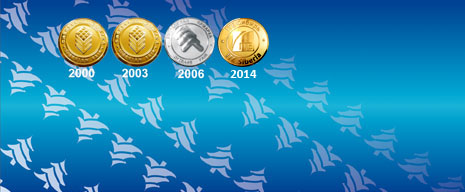 |
 |
No. 4 (2018)
Internship as an Activity Form of Teacher Training
The article poses the problem of organizational and substantial updating of the system of additional professional education of teachers, the creation of competence models on the basis of educational technologies of the activity type.
Mentoring as the Form of Psychology-Pedagogical Support of Adolescents Who are Growing in Adopted Families
The article deals with the problem of psychological and pedagogical support of adolescents who are brought up in substitute families. The specificity of the adolescent period and the conditions of deprivation create special difficulties in adapting these children to a substitute family.
Potentials and Effects of National Public Administration in Education Quality Improvement in Modern Educational Institution
The article presents conceptual summation of phenomenon development of national public administration in the system of Russian education on different administrative levels. The theme line deals with the understanding of direct correlation of the quality improvement processes and effective development of collegial administrative bodies activities in the modern educational institutions.
Assessment of the Experimental Tasks of General State Physics ExaminationAssessment of the Experimental Tasks of General State Physics Examination
The article reviews peculiarities of experimental task of the general state physics exam and its assessment. Assessment criteria of experimental tasks are analyzed. Types of experimental tasks have been defined, comparison of criteria for different types of these tasks have been made. Analysis data has been presented in the form of tables. Formulations have been offered, which concretize and supplement the criteria of the assessment.
A Comparison of the Effectiveness of the Teaching Methods of Discrete Mathematics
The article presents a comparison of the effectiveness of genetic and activity methods of teaching discrete mathematics in the direction of "Information technology" at the Novosibirsk state University of water transport. The descriptions of these methods in application to some sections of discrete mathematics are given, the specificity of the discipline in question is discussed. The substantiation of statistical methods by which this comparison is made is given.
What to Teach the Students in the Engineering Classes?
To develop engineering education in schools, classes specialized in engineering and technology (the engineering classes) are being organized. The problem of the education content in the engineering classes is relevant.
The article presents the authors’ point of view on the competence of the future engineer and its components, it considers the concepts of soft, hard and digital skills and their importance in the education of a professional. The experience of forming these skills in "Engineering Lyceum NSTU" can be taken as a typical example.
Intersubject Modules of the Natural-Science Direction in the Program of the School of the Educational Center "Sirius"
The article presents the authors' experience in the development, testing and implementation of projects of interdisciplinary educational modules. The work was carried out on the basis of the Educational center "Sirius" in the city of Sochi, in which profile educational programs are implemented in one of three directions: "Sport", "Art", "Science". The principles and general approaches to the formation of educational programs are briefly described, including the use of an integrative approach.
Influence of the Subscription of Childhood on the Development of the Personality of the Child
Junior school age is one of the most important periods in a person's life. At this time, there is a primary socialization, the formation of the personality, the beginning of the formation of self-esteem, the formation of the basic features of personality and qualities. The formation and development of the child's personality is influenced by physiological and mental characteristics, environmental characteristics, social environment. At children of younger school age there is an improvement of cognitive processes and the higher mental functions.
Community "Virtual Travelers" in Primary School
This article presents the experience of the "student-teacher-parent" community, its role in organizing and conducting virtual tours with the goal of forming representations of a holistic picture of the world, increasing cognitive activity, forming various types of universal educational activities in the context of standard. The authors of the article analyzed the conceptual field on the topic of the article, established the connection between the needs of the modern student and the state's regulatory requirements.
The role of Children-Adult Communities in the Socialization of Younger Schoolchildren
Professional standard today requires the teacher's ability to form children's and adult communities, to know their social and psychological characteristics, patterns of development. The creation of adult-child communities helps to solve the problem of socialization of primary school students, i.e. their inclusion in public life. In this article, the authors present their experience in creating adult-child communities for the purpose of socialization of students.
Сайт поддерживается в Новосибирском институте повышения квалификации и переподготовки работников образования и является участником Новосибирской открытой образовательной сети

